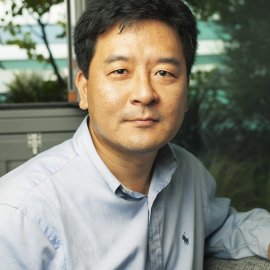Legal History, Seoul National University, South Korea

d'octobre 2014 à juin 2015
After a Bachelor and Master in Law from the Seoul National University, Ki-Won HONG came to France in 1999 to study legal history with a fellowship from the French Ministry of Foreign Affairs (Eiffel Excellence fellowship). He received a PhD in Law in 2008 from the Faculty of Law of the University of Aix-en-Provence. Since his PhD dissertation on the political though of François Hotman (1524-1590), he is focusing his research on the idea of rule of law.
He is now teaching history of law in South Korean universities. His research area covers not only history of law but also comparative law, aiming at constructing academic bridge linking South Korean scholars to foreign colleagues.
"The best political regime for the Reformers of the early modern period"
It is not only its modern aspects, but also the way of justifying its new ideas, based on the authority of the Ancient authors, that make historians pay attention to the 16-17th-century Reformers’ political thought. The research carried out by Ki-Won HONG at the Institute aims to enrich our understanding of the Reformers' ideas by focusing on the topic of the best political regime. An attentive reading of the major texts from Calvin to Leibniz will result in showing various faces of their political theory as well as what those political assertions really wanted to stress upon in common.
The first part of the research will be dedicated to the textual analysis of the early Reformers in Geneva and France (Calvin, Bèze, Hotman, Daneau, Mornay), who had planned to historicize the best political regime in politico-theological context. Continuing with a comparative perspective, the second part will investigate the similar endeavors undertaken by the Anglican authors (Selden, Locke). Finally, the third part of the research will return to the Continent with a view to investigate the jusnaturalist foundations of the theory of the best form of government in the Lutherans in Leipzig (Pufendorf, Leibniz).